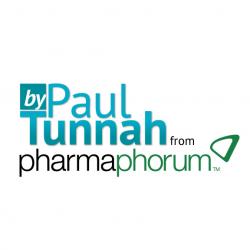
It is the perennial question that bounces around those of us who work in the pharmaceutical industry. Can an industry as heavily regulated as pharma, and therefore inherently conservative in its external communication, ever really ‘get’ social media in the way that other sectors, like FMCG, do?

It is the perennial question that bounces around those of us who work in the pharmaceutical industry. Can an industry as heavily regulated as pharma, and therefore inherently conservative in its external communication, ever really ‘get’ social media in the way that other sectors, like FMCG, do?
If you conduct a straw poll of those in pharma, you will get as many different answers as there are social media channels, ranging from the staunch opponents who cannot fathom how the industry can possibly engage in meaningful two-way conversation without significant risk of regulatory breach, through to the social media cheerleaders who see it as pivotal to its future.
But whilst the industry has certainly been slow to embrace social media, don’t write it off just yet – there are signs of progress. Recently, for example, German pharma giant Boehringer Ingelheim released a YouTube video to recognise and thank the 50,000 people who had liked its Facebook page.
>
The video immediately triggered some interesting responses. Healthcare social business development expert, Andrew Spong, was dismissive in his analysis of the piece, seeing the presentation as clunky, the messaging overtly promotional and suggesting that recognising ‘likes’ fundamentally missed the point of social media, where success should be measured on engagement.
US industry observer, John Mack, was a little warmer in his review, suggesting the volume of likes epitomised how far pharma has come with social media, even if the level of comment interaction is far lower, perhaps due to highly restrictive moderation rules.
The criticisms raised by both pieces cannot be dismissed. For sure, the video could have been a little slicker – it comes across as quite ‘corporate’ in its messaging, especially during the intro which is an advert for the Facebook page, and Allan Hillgrove, from Boehringer’s Board of Managing Directors, could be more settled in front of the camera.
However, for me there is a lot that is right about this piece too, in terms of what it says about Boehringer’s commitment to, and understanding of, social media:
- Achieving 50,000 likes on Boehringer’s facebook page is noteworthy, particularly when you consider how it has been achieved. The company has been keen to step beyond corporate messaging and disease area communication, with initiatives such as photo competitions, which have seen considerable external engagement.
- By commissioning this video, Boehringer is showing that it recognises that the success of social media depends on delivering value to these external users, not just pumping out corporate information. How many other pharma companies have taken the time to thank their followers in this way?
- Involving senior management suggests that social media at Boehringer is not just the realm of the young innovators, but recognised as important at every level of the organisation.
There is also a much deeper aspect to this too; the notion that social media is still very much an experimental channel for many companies (even beyond pharma), where the only way to understand how to use it properly is by trying, failing, learning and trying again. Again, Boehringer seems unusually willing amongst its pharma counterparts to try more risky innovative digital approaches that may not deliver tangible results in the short-term, but will help develop its understanding of these channels. Take a look at its recent Facebook game, Syrum, for example.
For those of us with an interest in social media who sit outside big pharma corporations, it can be all too easy to criticise the industry for not being innovative enough, or moving with insufficient speed, in this space. But we must also remember the meaning of #failbetter – that imperfect initiatives still deliver valuable lessons and the only real failure is to try nothing new.
So Boehringer’s video may not have been perfect, but it shows the right intent and, more importantly, that at least some elements of the pharma industry do get the value of social media. Hopefully it will inspire other companies to focus more on recognising the value of those engaging with their channels.
After that, refining the presentation is the easy bit.








